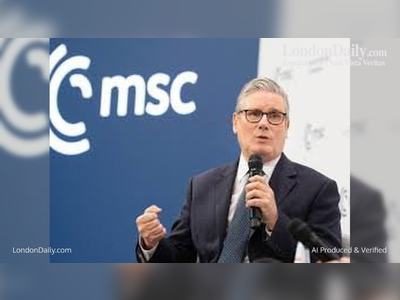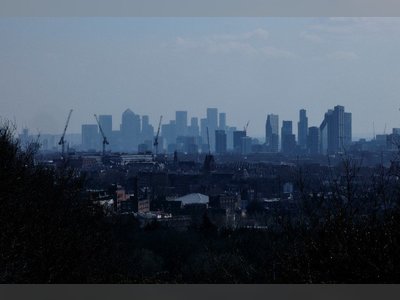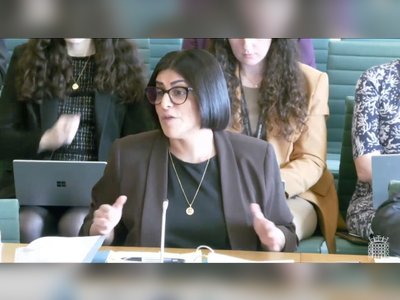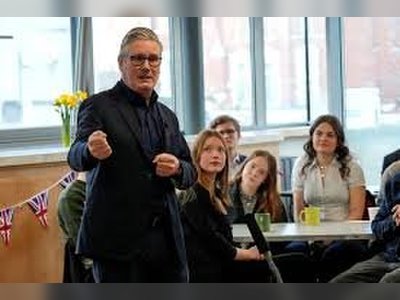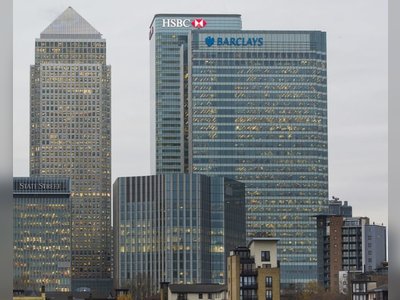
Moscow gains new leverage with coronavirus vaccine breakthrough
When news broke last August that Russia was the first country to approve a vaccine against the coronavirus, it was met with raised eyebrows around the globe.
The shot — named Sputnik V — hadn’t gone through the standard testing regime. Experts warned that the rushed process risked undermining public confidence in the shot. Meanwhile, media reported that production snags were delaying its rollout.
Impressive late-stage clinical trial results published in one of the world’s most prestigious medical journals Tuesday, however, have provided a sought-after endorsement from the scientific community.
The news that the jab is as effective as the West’s best efforts provides reason for cheer in regions like the Middle East and South America, where some countries have approved the vaccine — but it also could dog EU officials trying to hold together a coalition that has become embittered over the bloc's contested vaccine strategy and sluggish vaccine rollout.
As countries like Hungary and Serbia — and maybe Germany — seek alliances with the Russian developer, EU citizens may want to know why leaders didn't engage with Moscow from the start for the broader sake of public health.
The study in the Lancet, above all else, establishes the vaccine as a serious contender with an efficacy rate of about 92 percent. The figure was arrived at by comparing the number of people infected with coronavirus in the vaccinated group (14,964 subjects) with a control group given a placebo (4,902 subjects).
Measurement of coronavirus infections started when the second dose was administered, 21 days after the first dose. Researchers recorded 16 cases of symptomatic COVID-19 in the vaccine group versus 62 cases in the placebo group. Importantly, there were no cases of "moderate or severe" coronavirus infections in the vaccinated group.
Global roadshow
The results will embolden countries on the EU's periphery, like Serbia and Belarus, that bet on the Russian vaccine. And it already has a taker within the EU: Hungary, which approved Sputnik V on January 22. (Budapest used an emergency authorization process allowing EU states to bypass rules that new biologically derived treatments should only be assessed centrally by the European Medicines Agency.)
POLITICO contacted every medicines agency in the EU and the European Economic Area. Among those who responded — Belgium, Slovakia, Croatia, Latvia, the Netherlands, Estonia, Ireland and Spain — none said they had had any contact with the Sputnik team. And none intend to.
“For the time being, there are no plans for directly obtaining Sputnik V vaccine,” said Ivana Šipić Gavrilović, spokesperson for the Croatian medicines agency HALMED.
Because the vaccine is derived from biotechnology processes, she said, a "centralized procedure is compulsory for its marketing authorization in the EU."
"Therefore, we are closely following the situation regarding the vaccine’s possible authorization through the said procedure, which would provide an equal and high level of safety for all European citizens," she added.
“We will follow the EMA,” said Dony Potasse, spokesperson for the Dutch drugs agency MEB.
A spokesperson for Russia’s sovereign wealth fund responsible for promoting the shot abroad, the Russian Direct Investment Fund, suggested otherwise, claiming that bilateral talks with unnamed countries in the EU — in both the east and west — are going forward.
To date, Hungary had only received small batches to use in clinical trials. But Reuters reported the first delivery of 40,000 doses was due to arrive Tuesday, citing a public television interview with Foreign Minister Peter Szijjarto.
While some have balked at the Hungarians’ solitary approach, others think the EU has wasted time for political reasons — and lost time fighting the virus and preventing more deaths.
One is Bavaria's premier Markus Söder, who said over the weekend that EU regulators should urgently review the Russian and Chinese vaccines, clearing them for use if they are safe and effective. German Health Minister Jens Spahn made a similar remark, suggesting they should be used all across Europe if they’re safe. Chancellor Angela Merkel, meanwhile, discussed manufacturing Sputnik at a German facility on a recent call with Russian President Vladimir Putin.
The looming question, then, is timing of EU approval. The RDIF spokesperson said Tuesday that talks with the European Medicines Agency — responsible for signing off on any vaccine used in the EU — are ongoing. The Sputnik team is sending a ream of data to the regulator, with the start of the review expected to be announced later this month.
Who will buy?
Sputnik could prove to be a valuable lifeline for many countries. According to the Sputnik team, the shot is sold at less than $10 a dose, far cheaper than the mRNA vaccines made by BioNTech/Pfizer and Moderna — but still more than the price of a similar adenovirus vaccine from Oxford/AstraZeneca, which costs between $4 and $5 a dose.
Importantly, because the Sputnik vaccine uses adenoviral vector technology, it's stable at 2-8 degrees Celsius and therefore easier to deal with than the mRNA vaccines, which need extremely cold storage. This could prove to be a boon for less wealthy countries like Bulgaria, which didn't want to purchase vaccines that required ultra-cold storage, according to media reports.
Indeed, one RDIF official told journalists Tuesday that the shot was designed with accessibility in mind, as the necessary infrastructure for mRNA vaccines wasn’t guaranteed to be in place in far-flung Siberia.
Should Budapest start overtaking its neighbors in vaccination while the rest of the EU struggles, the Sputnik jab could prove irresistible to countries in the neighborhood that have somewhat warmer relations with Moscow, driving a further wedge in the European Commission’s vaccine strategy.
One former Czech health minister has already argued that it's wrong to ignore Sputnik, and that the country should consider obtaining some of the vaccine for its own population.
However, this all depends on the amount of vaccine that Russia can manufacture. RDIF didn’t reveal how much production is currently online, but said it's aiming to produce 1 billion doses by the end of the year — enough for 500 million people. It has production agreements with a number of countries outside of Russia, including India, Korea and Brazil. Manufacturing in China will start in February.
But Simona Guagliardo, health policy analyst at the European Policy Centre, cautioned that it’s important to understand the weight that the EMA's sign-off has.
“The procedures put in place by the EMA aim to create trust in vaccines,” she explained. “This isn’t a small detail if we think about how Europe is the global epicenter for vaccine hesitancy.”
Global ambitions
Up until now, Sputnik V — along with China’s Sinovac and Sinopharm — has been seen as the only route to vaccination for low- and middle-income countries. Unable to afford vaccine deals with big pharmas on one hand, and under-served by the global COVAX facility on the other, these nations have been turning to Russia and China — potentially at the expense of quality.
The fact that these vaccines were being bought up before their efficacy was proven is merely an indicator of countries’ desperation, said Kate Elder, senior vaccines policy adviser at Doctors Without Borders.
Tuesday's Lancet report, therefore, may come as some relief to both these countries and clinicians like Elder, who want to see equal access to quality vaccines for all.
Theresa Fallon, director for the Centre for Russia Europe Asia Studies, is clear in her assessment: The Russian vaccine has joined a “prestigious club of three global vaccines which are confirmed to be more than 90 percent effective.”
“Competition is good, even in vaccinations, and the sooner vaccination programs are rolled out, the sooner the world can recover from this pandemic,” Fallon said.
